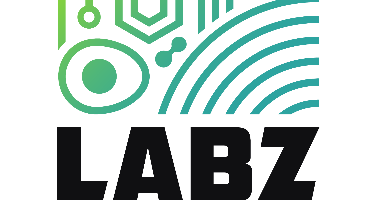Vinay Devabhakthuni
Project Ownerhttps://www.linkedin.com/in/vinay-devabhakthuni-b642bb90/
DEEP - Where bold, bright and beneficial ideas are turned into real world solutions to create a better future for all!
Coming Soon
This proposal introduces the Composable Knowledge Graph Toolkit — a modular, developer-friendly framework for constructing, managing and reasoning over symbolic knowledge graphs in AGI systems. It is designed for seamless integration with OpenCog Hyperon and the MeTTa language, while supporting semantic web standards (RDF/OWL) and decentralized knowledge provenance (DIDs, IPFS). Unlike monolithic graph tools, this toolkit emphasizes modularity, symbolic runtime compatibility and developer-centric usability. It empowers AGI developers to build more transparent, traceable and trustworthy reasoning systems.
This RFP seeks the development of advanced tools and techniques for interfacing with, refining, and evaluating knowledge graphs that support reasoning in AGI systems. Projects may target any part of the graph lifecycle — from extraction to refinement to benchmarking — and should optionally support symbolic reasoning within the OpenCog Hyperon framework, including compatibility with the MeTTa language and MORK knowledge graph. Bids are expected to range from $10,000 - $200,000.
Timeline: Month 1–1.5 Objective: To build a foundational pipeline that enables the ingestion of external knowledge sources (RDF/OWL) and translates them into symbolic graph structures compatible with AGI reasoning environments such as MeTTa.
- Ontology Loader Module: Converts RDF/OWL ontologies into MeTTa atoms, retaining class-property-instance logic. - Schema Validator & Structure Mapper: Ensures that imported ontologies are structurally consistent and compatible with internal graph logic. - CLI Tool (v1): Command-line interface to upload, transform and validate knowledge inputs.
$30,000 USD
- At least 10 standard ontologies (e.g., FOAF, DBpedia) successfully imported and converted to symbolic form. - Conversion pipeline handles 1000+ nodes per ontology with no data loss. - CLI tool provides usable outputs and generates validation logs. - Initial unit tests cover ≥80% of code paths.
Objective: To implement tools that normalize and unify imported knowledge structures and support seamless bidirectional transformation between symbolic representations and semantic web standards.
- Graph Canonicalizer: Normalizes symbolic knowledge (alias merging, structural cleanup, redundant node pruning). - Export Tools (JSON-LD, Turtle): Converts processed MeTTa graphs back to RDF/OWL-compatible formats. - Format Validation Test Suite: Ensures consistency of structure and content across import-export cycles.
$30,000 USD
- Canonicalizer successfully normalizes at least 5 diverse imported ontologies with different schema styles. - Round-trip conversion (RDF → MeTTa → RDF) preserves ≥95% of structural fidelity. - Graph export validated against RDF schema compliance tools. -Test suite confirms semantic equivalence across ≥10 transformation scenarios.
To enable real-time interaction with symbolic knowledge graphs within AGI runtimes by integrating MeTTa execution logic and AtomSpace memory interfaces, supported by a developer-accessible SDK.
- MeTTa Runtime Adapter: Allows MeTTa programs to load symbolic graphs and execute reasoning steps on them. - OpenCog AtomSpace Bridge: Enables read/write graph operations within AtomSpace to reflect memory and state changes. - Developer SDK (Rust or Python): Includes API bindings, code examples and helper functions for integrating graph logic into AGI tools or pipelines.
$30,000 USD
- Graphs are dynamically loaded into MeTTa runtime in under 500 ms for 1000+ node DAGs. - AtomSpace bridge successfully reads and updates at least 3 symbolic memory graphs in runtime simulations. - SDK includes publicly documented APIs, installation instructions, and usage notebooks. - Developers can use SDK to build and execute a complete graph-driven reasoning flow (input → process → output).
To provide user-facing tools for graph exploration and introduce decentralized provenance tracking using IPFS and DIDs, ensuring transparency, traceability and trust in symbolic reasoning workflows.
- Web-based Graph Explorer: UI built with React + Cytoscape.js to visualize, navigate and inspect symbolic DAGs. - Trace & Query Features: Supports search, filter and highlight paths or subgraphs (e.g., "show all nodes related to concept X"). - Provenance Metadata Layer: Tags each node with IPFS/DID metadata capturing source, creator and transformation lineage. - Graph Signing Utility: Allows contributors to cryptographically sign knowledge inputs or revisions using DID methods.
$30,000 USD
- DAG explorer renders 1000-node graphs in under 1 second, with real-time filtering enabled. - Provenance metadata is attached to ≥90% of knowledge entries and can be resolved via IPFS. - Signing utility verifies graph contribution identity using at least 2 DID methods (e.g., key pair, web DID). - Full knowledge trace available for 3 complete reasoning chains (i.e., input → decision → output with full metadata lineage).
Reviews & Ratings
Please create account or login to write a review and rate.
Check back later by refreshing the page.
© 2025 Deep Funding
Join the Discussion (0)
Please create account or login to post comments.